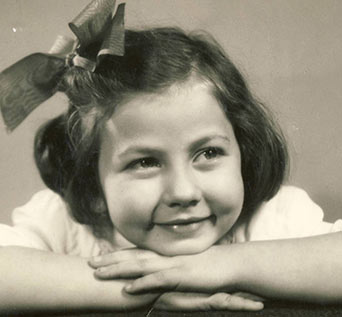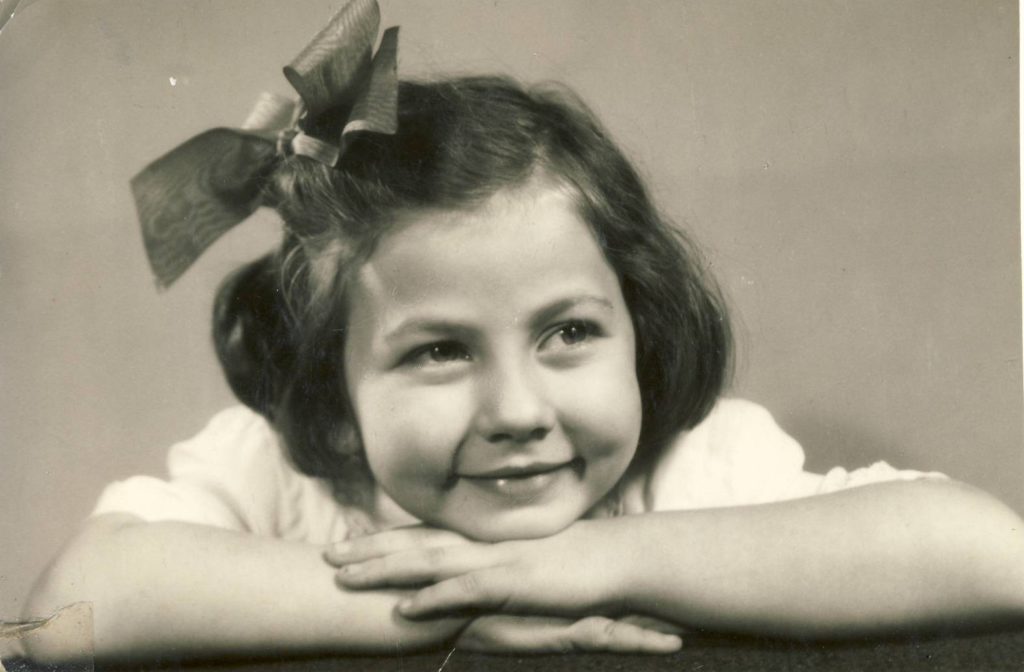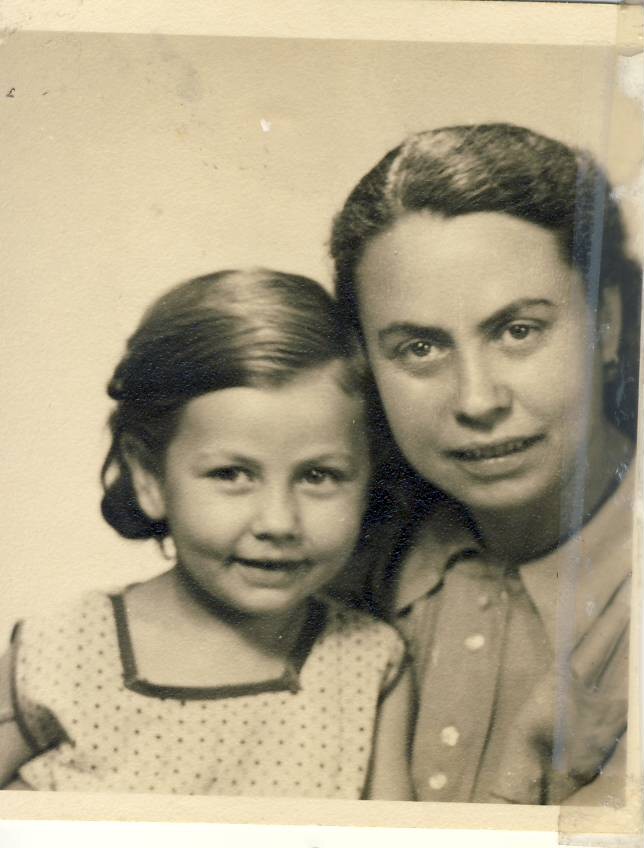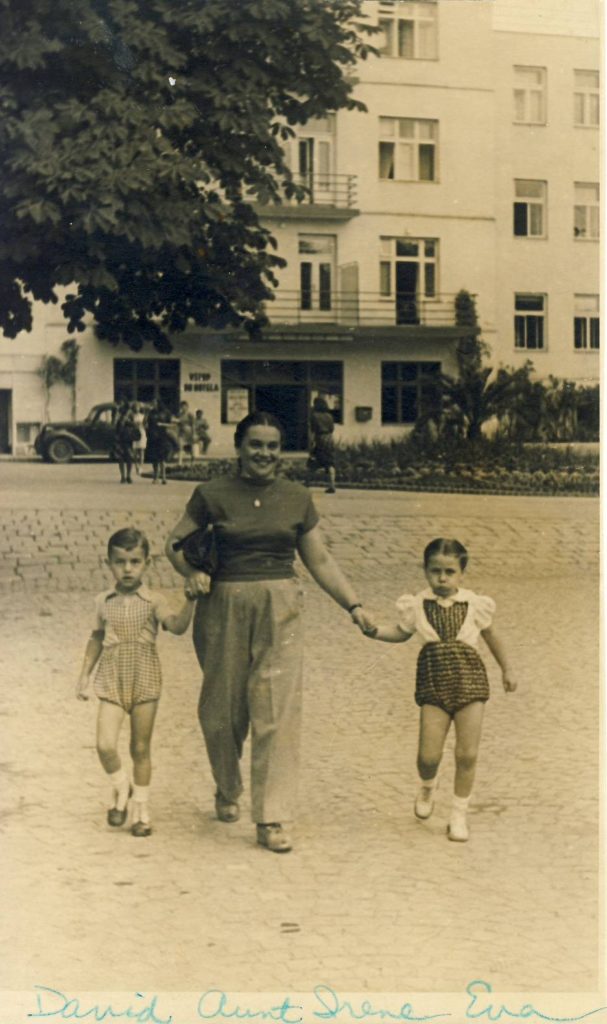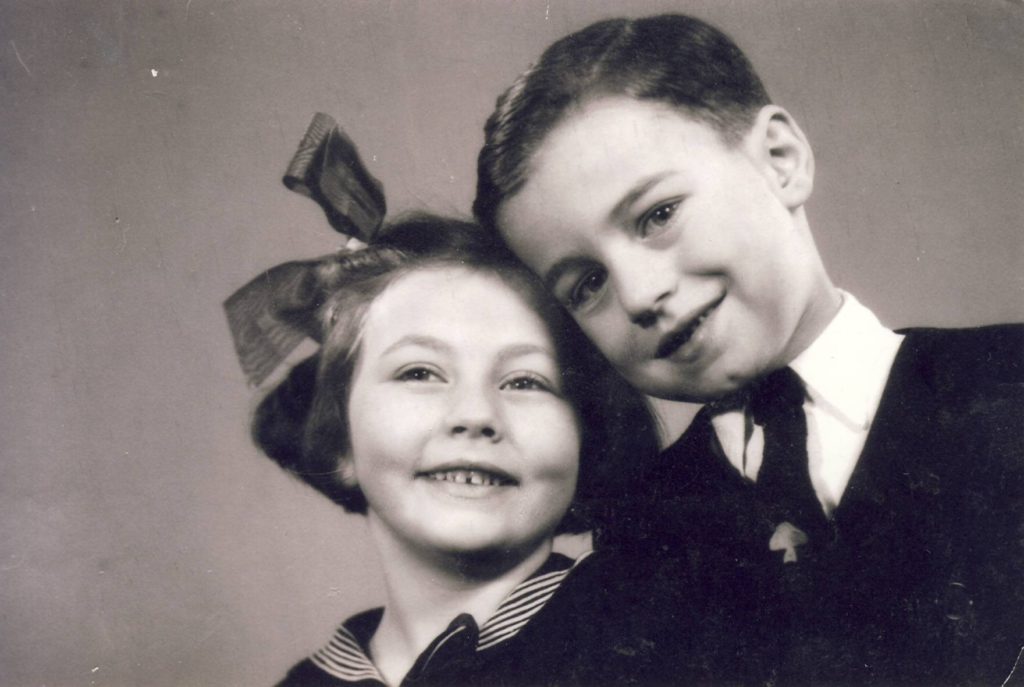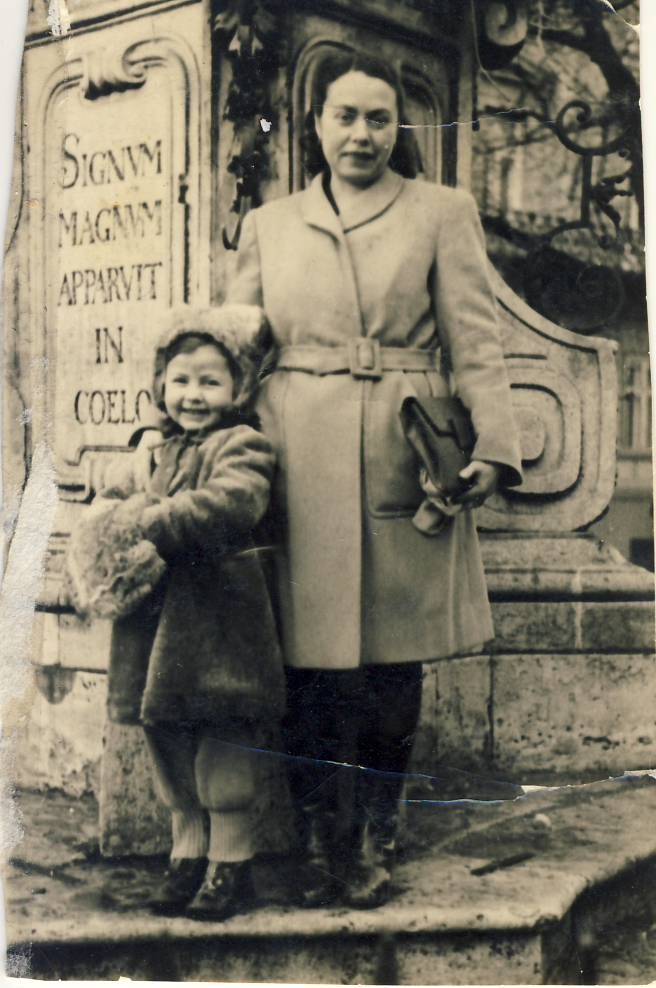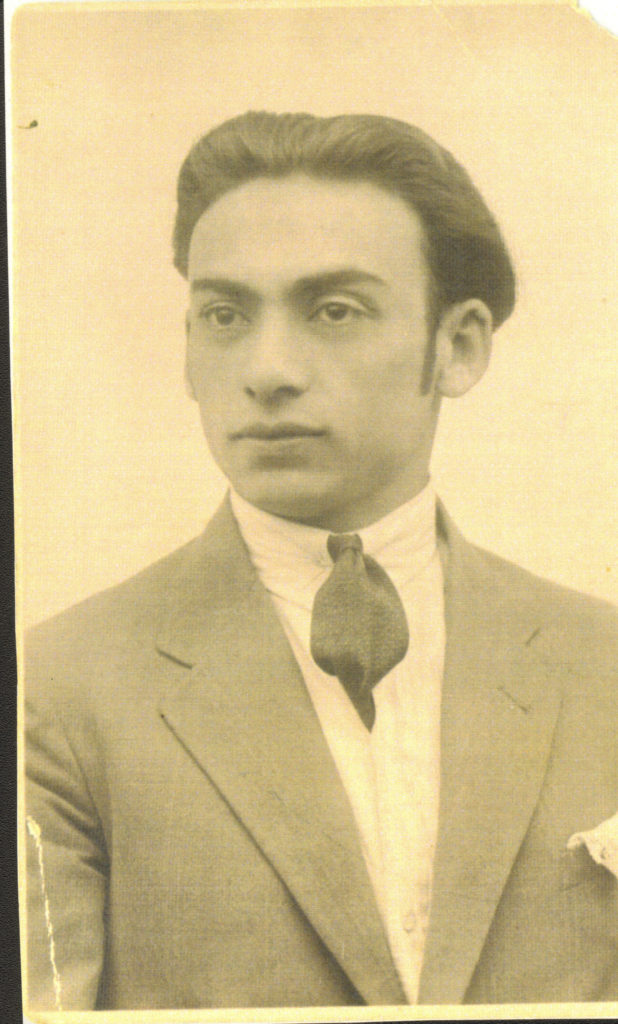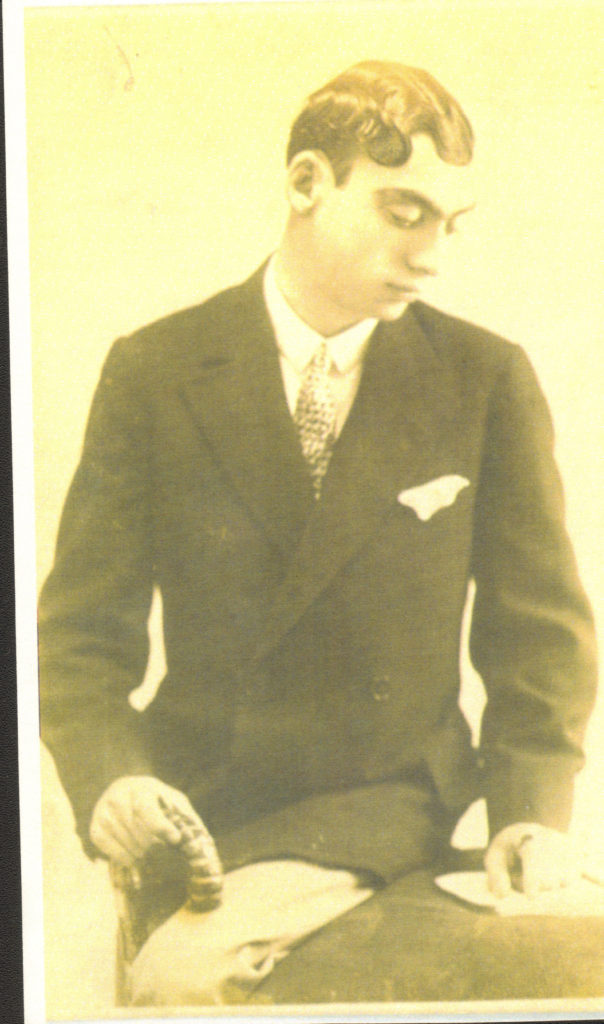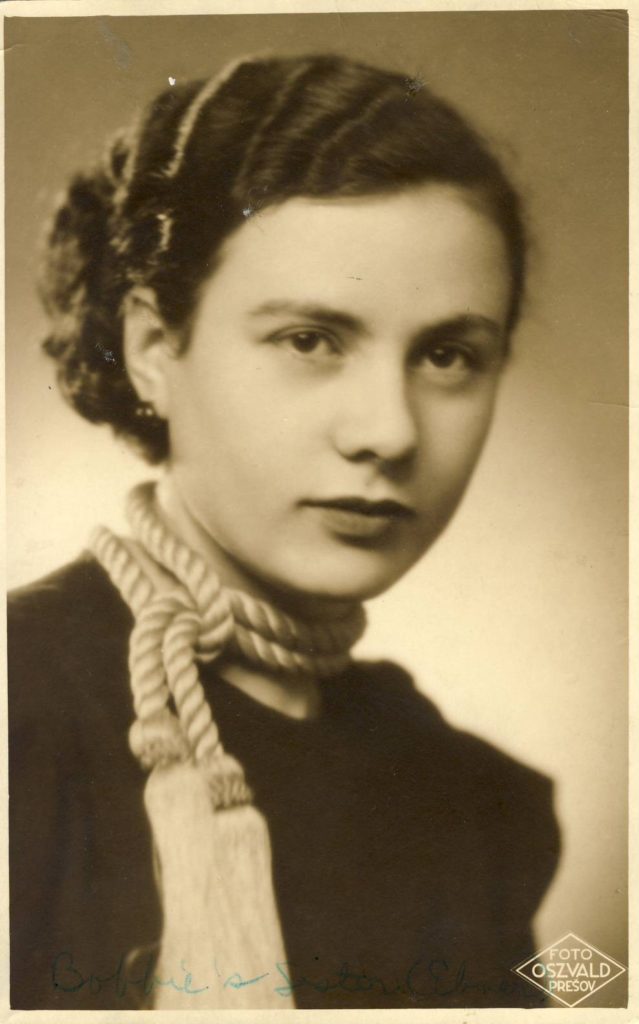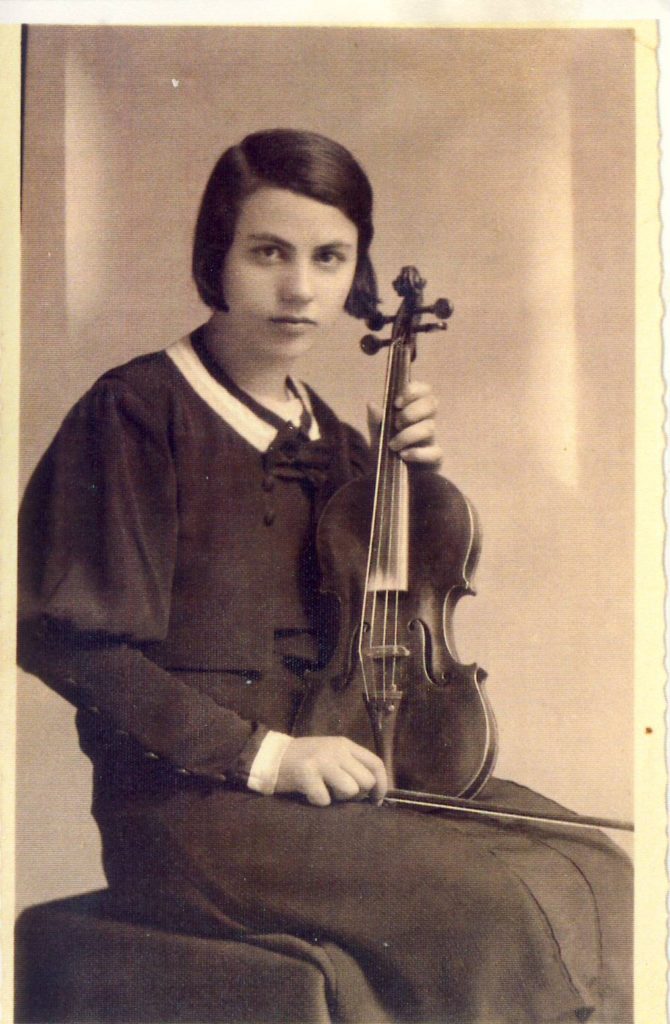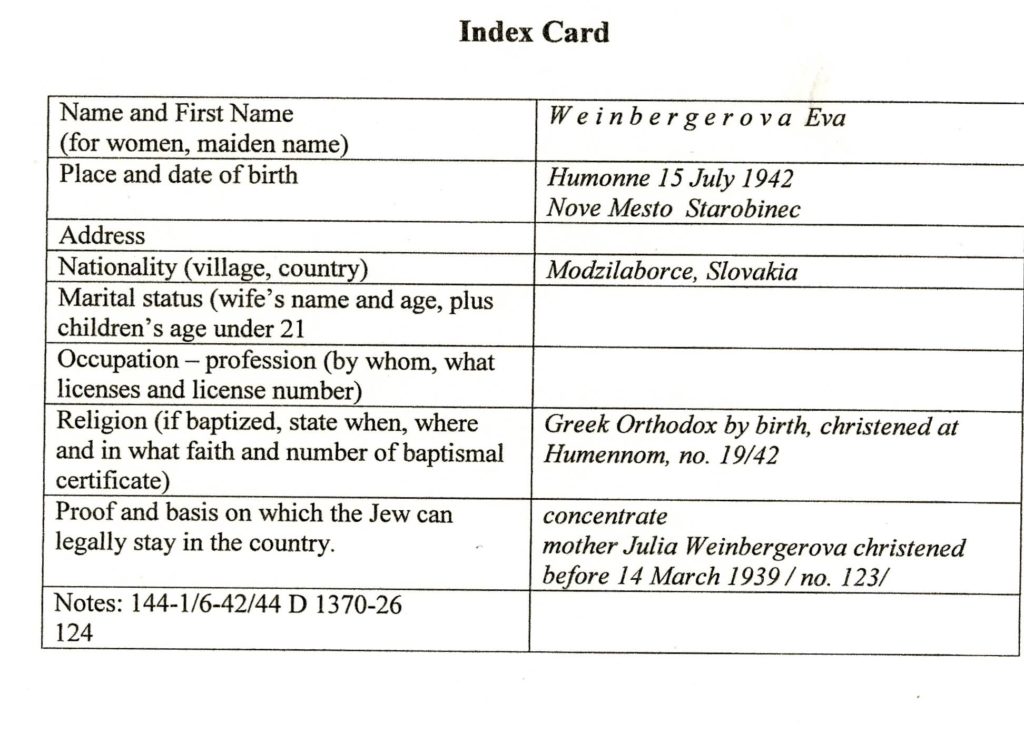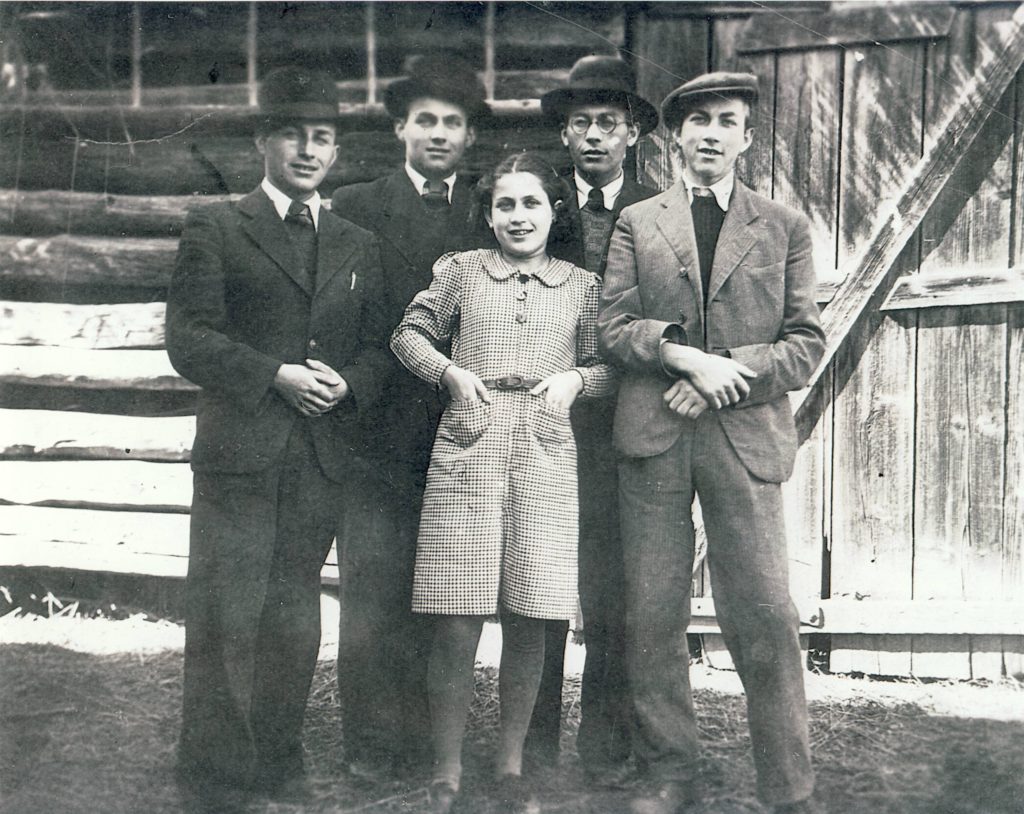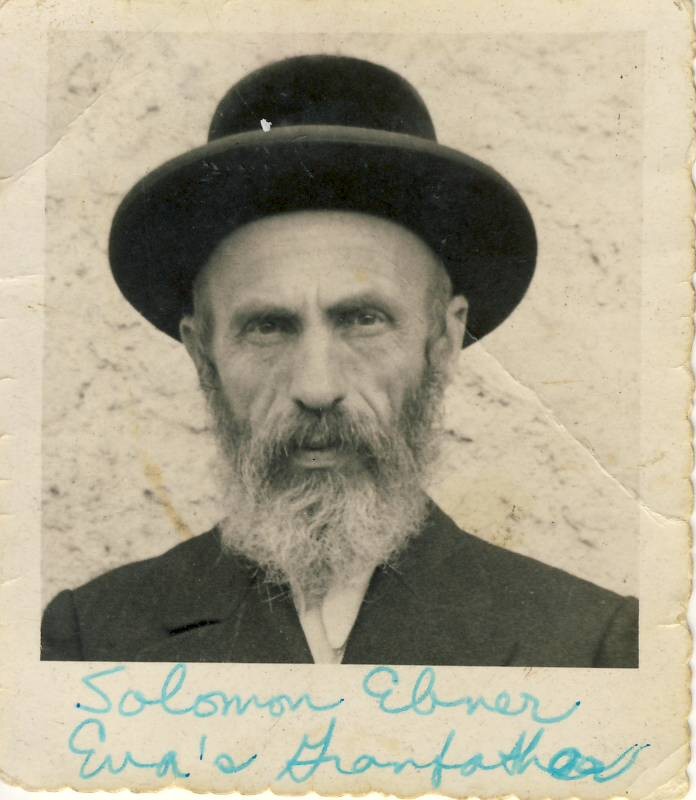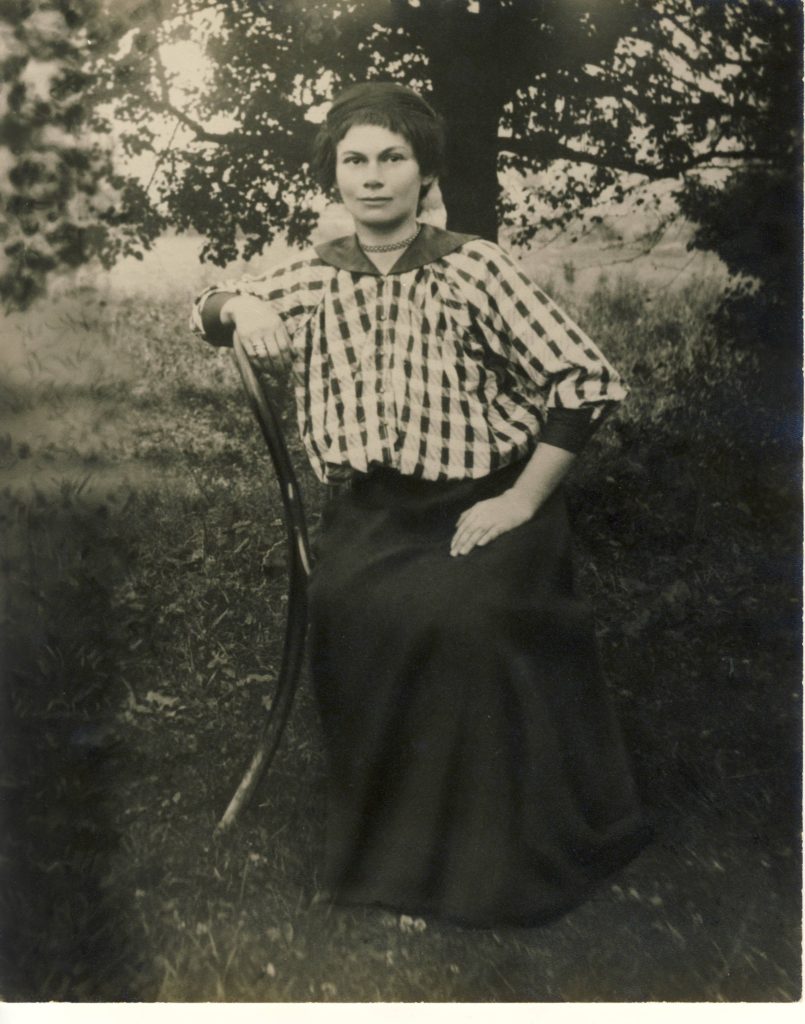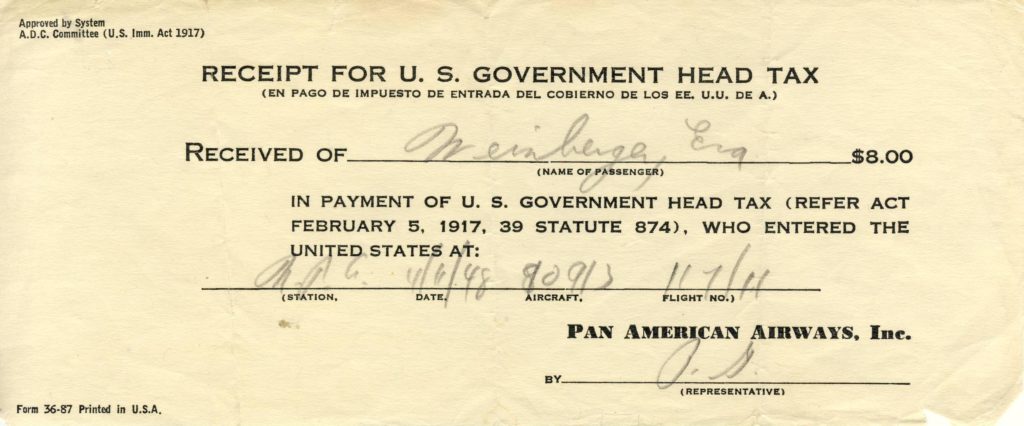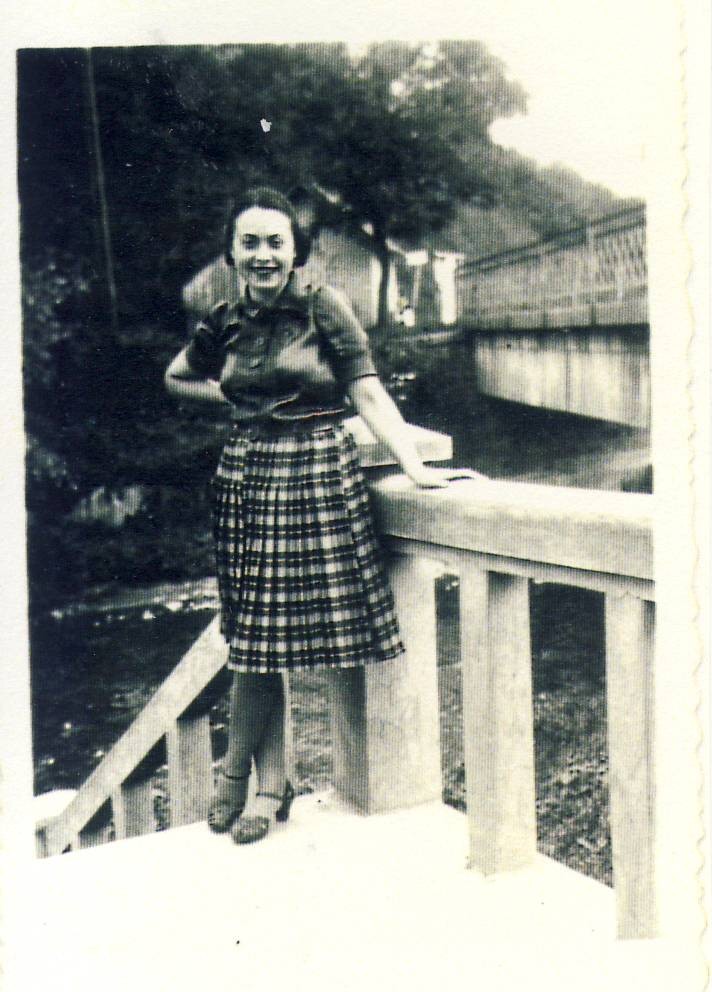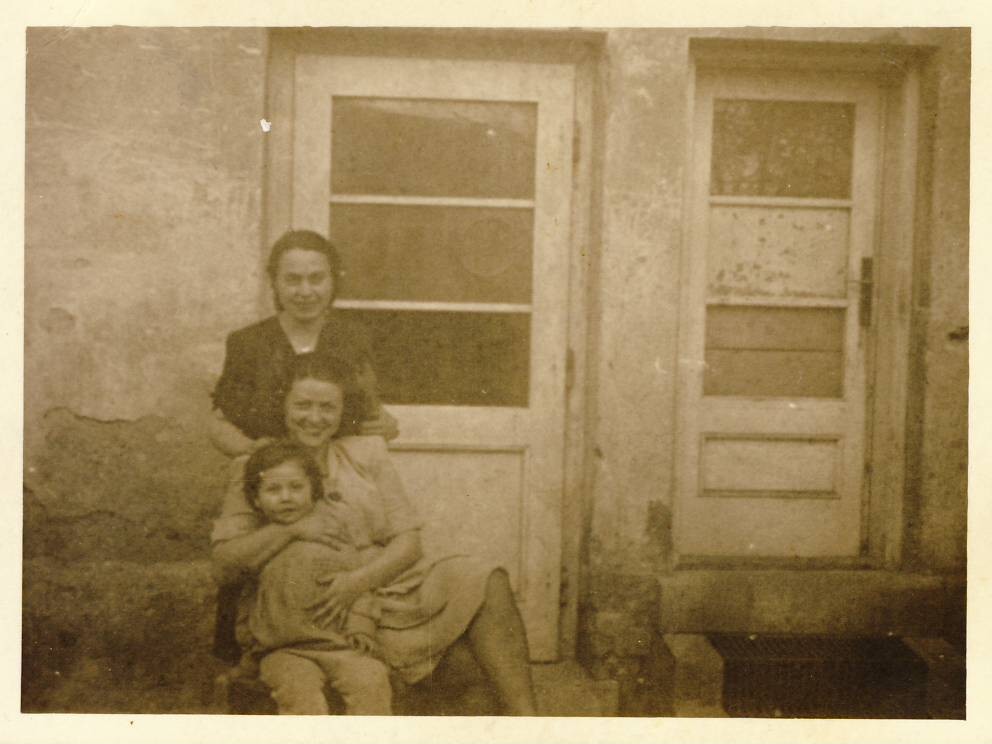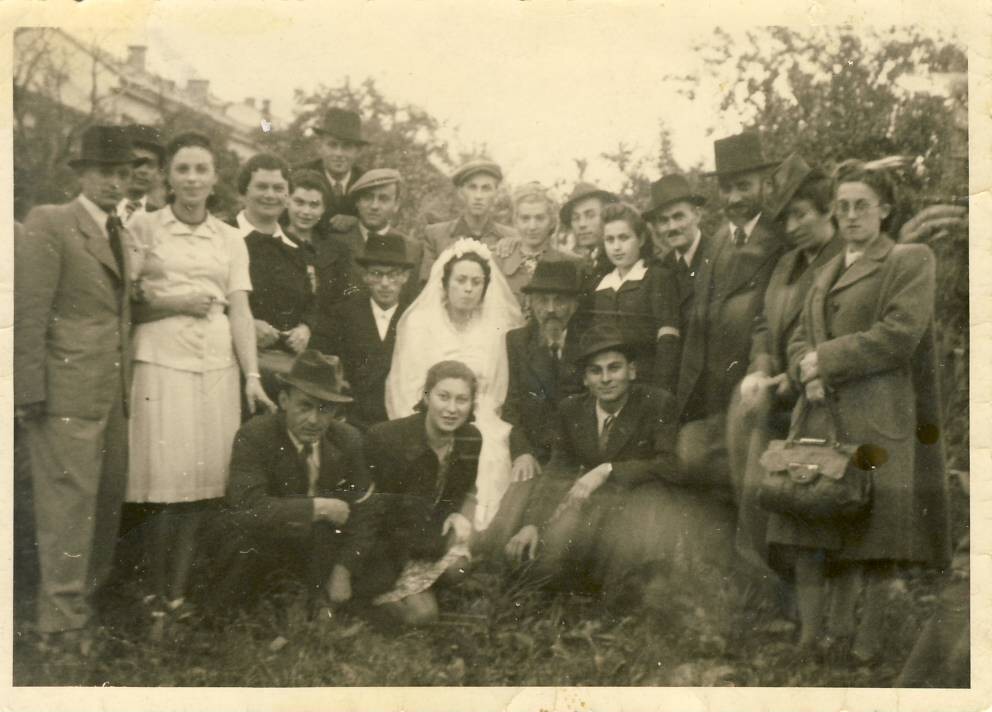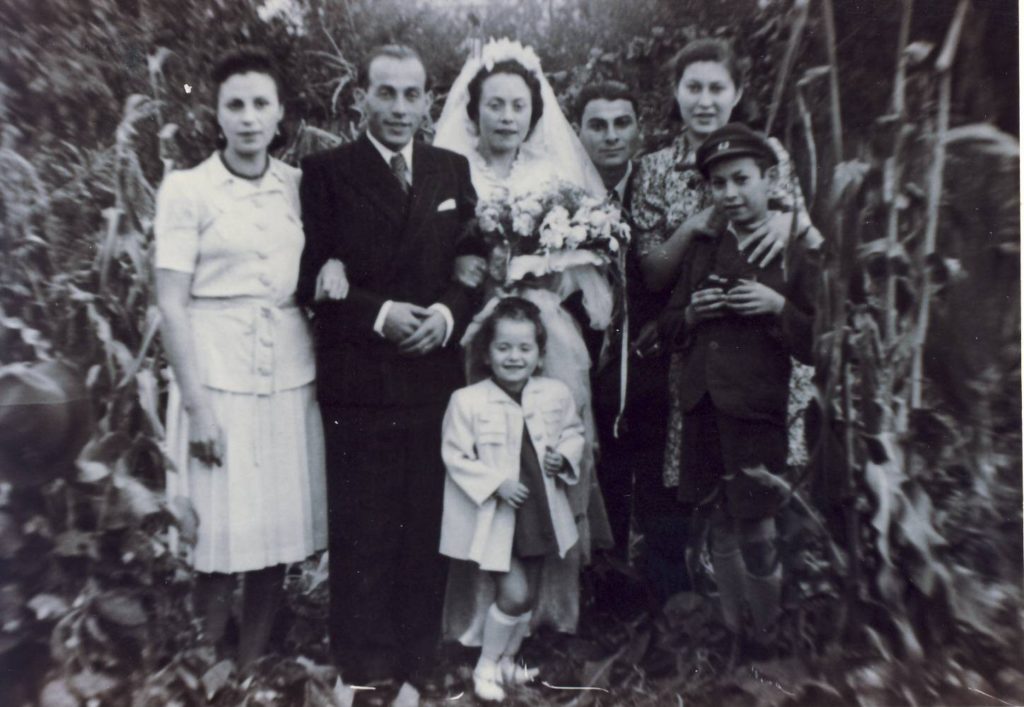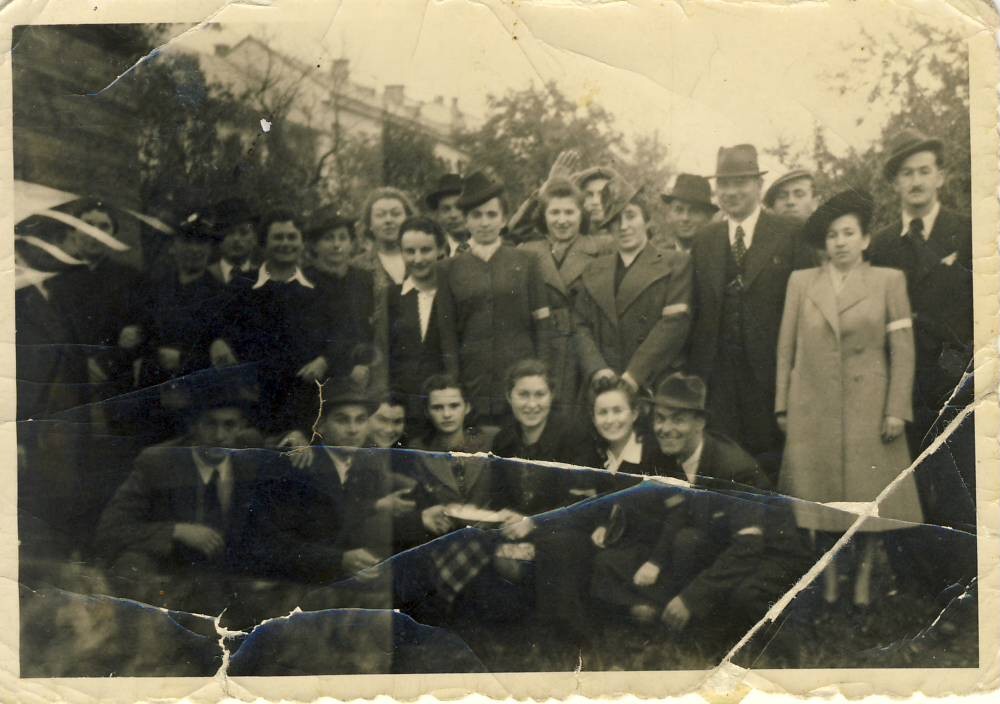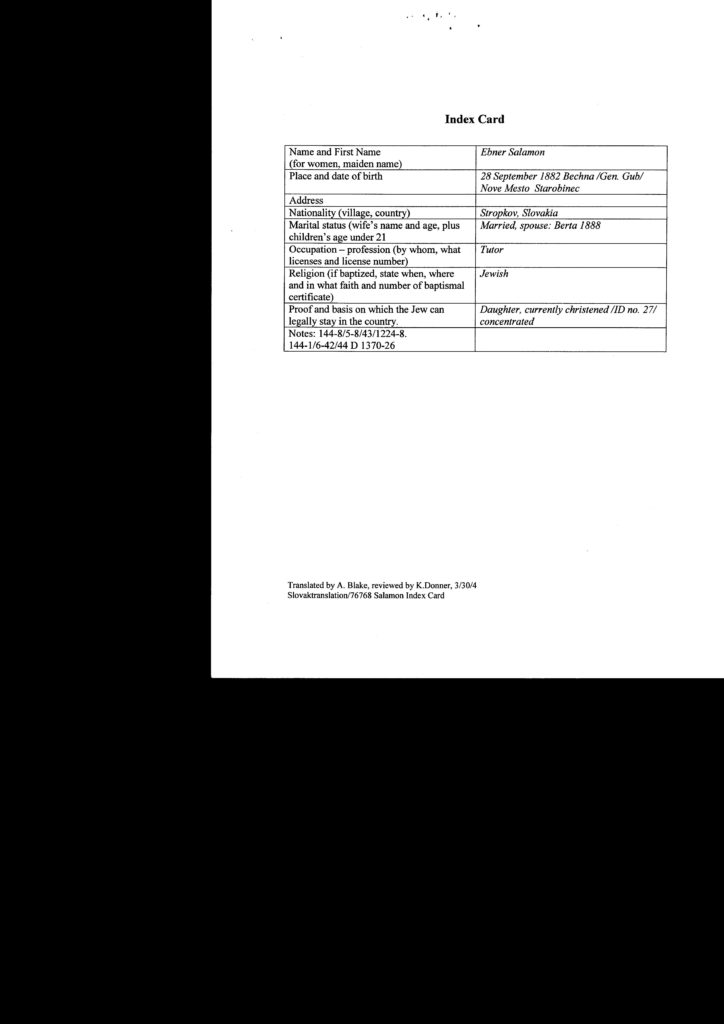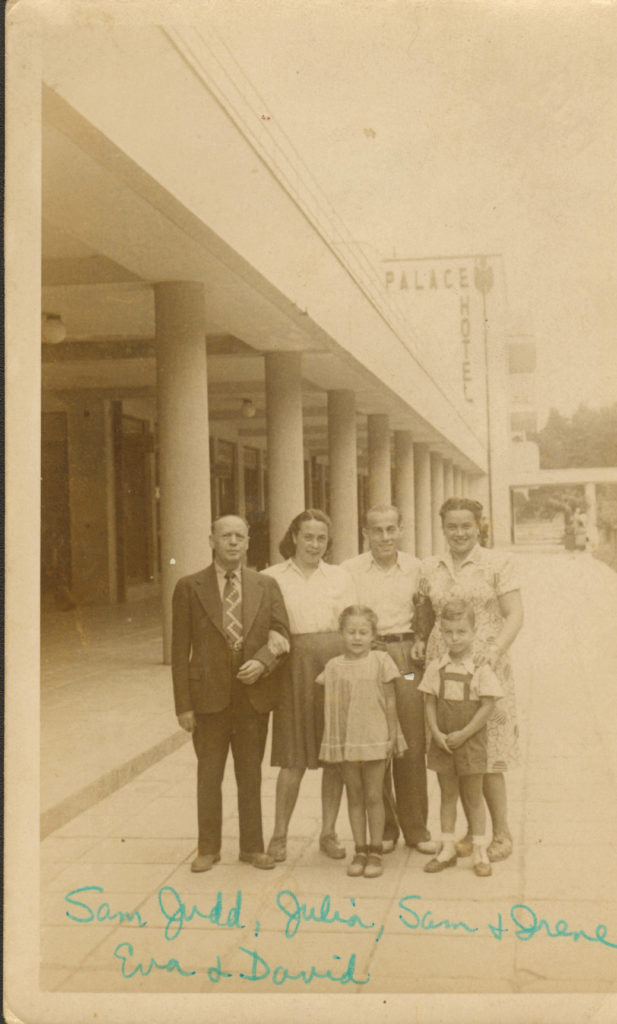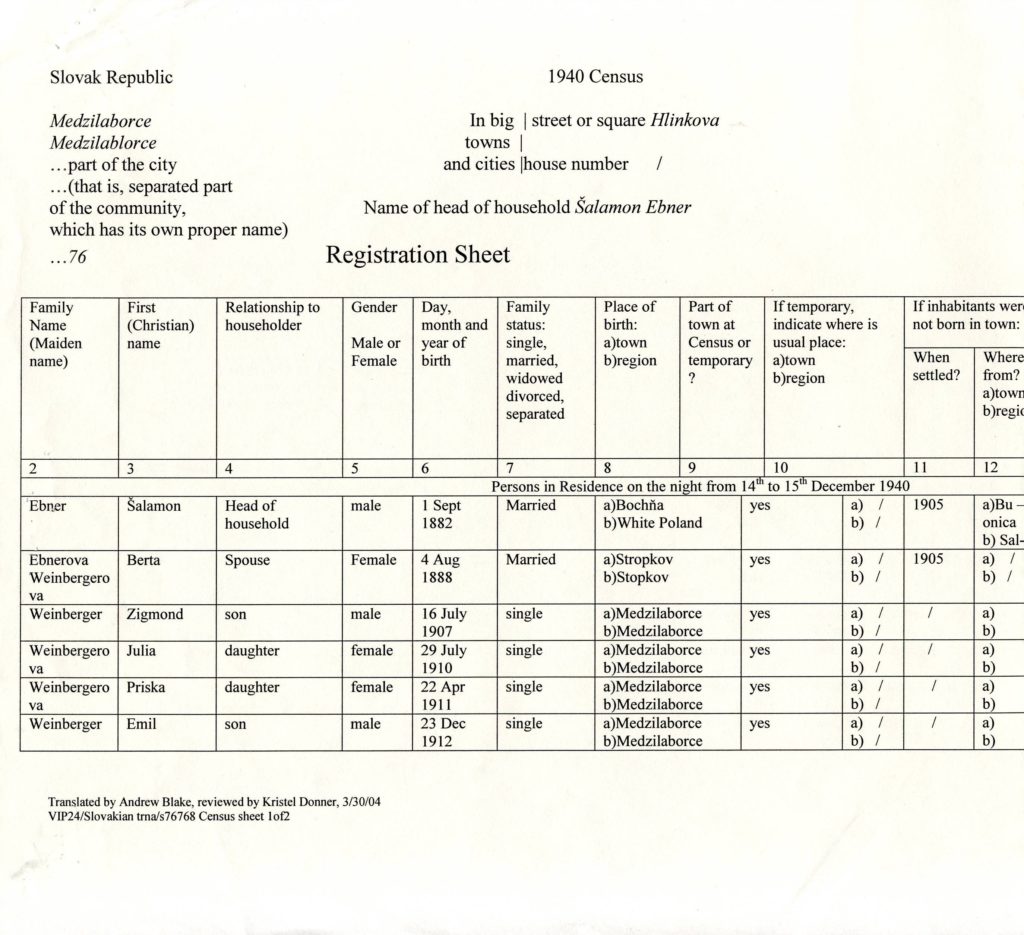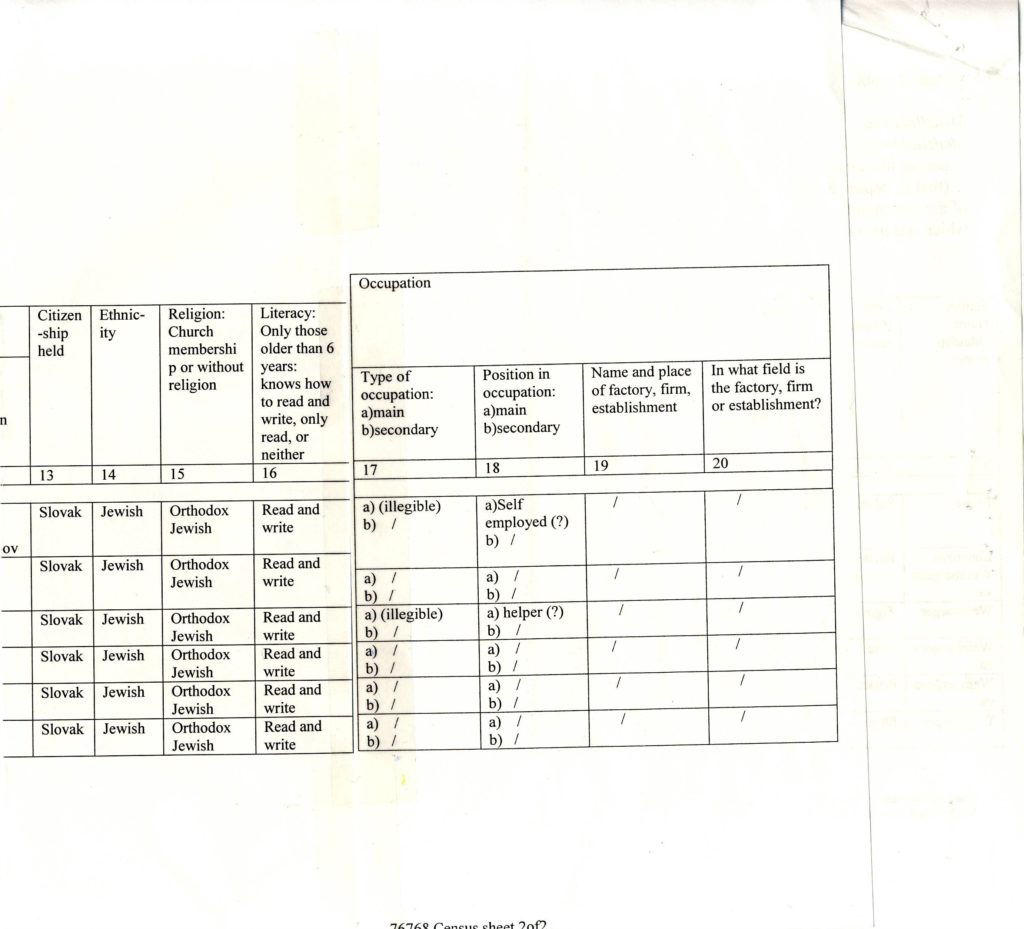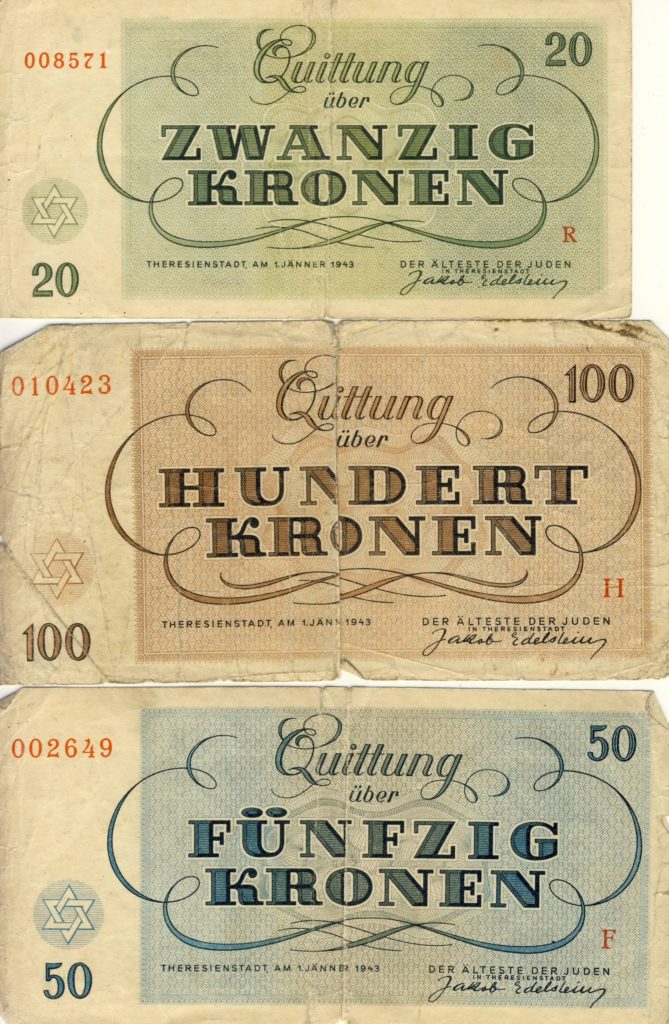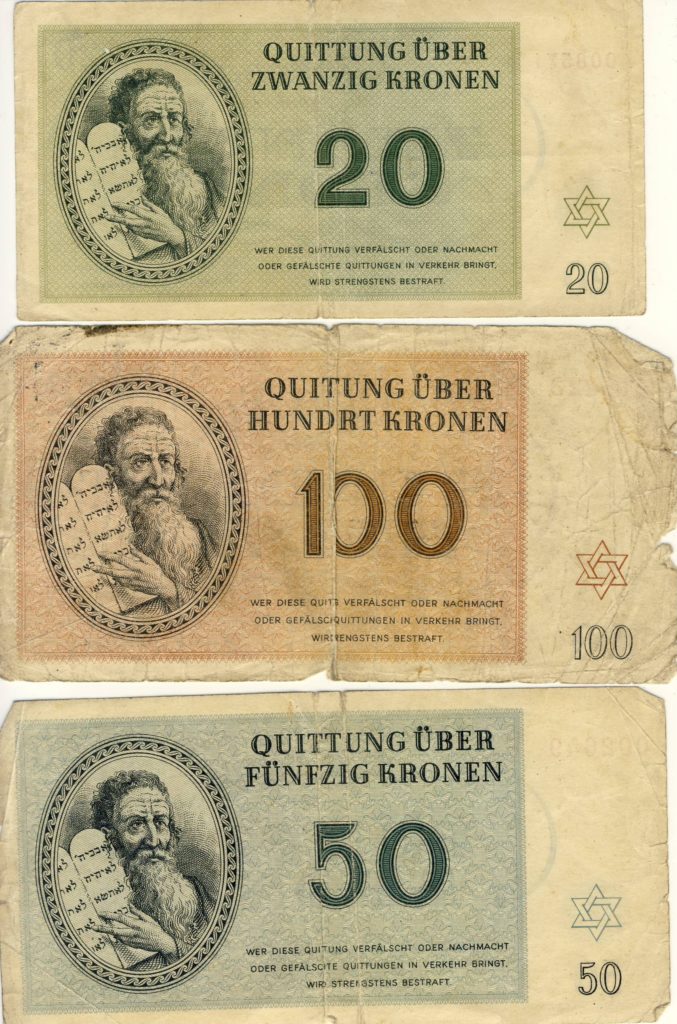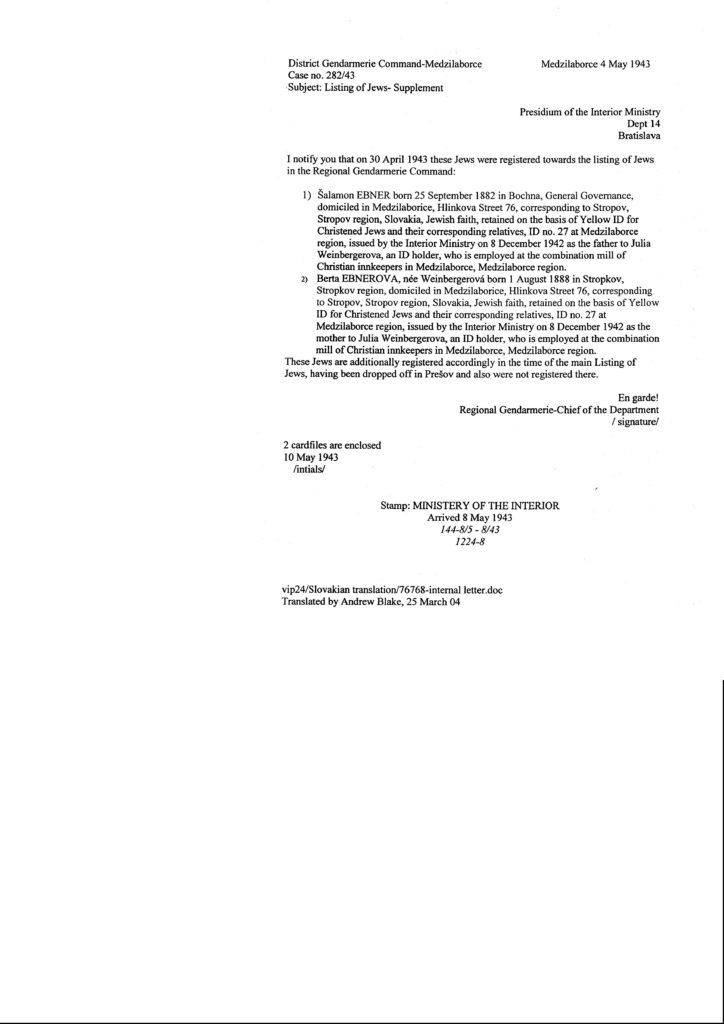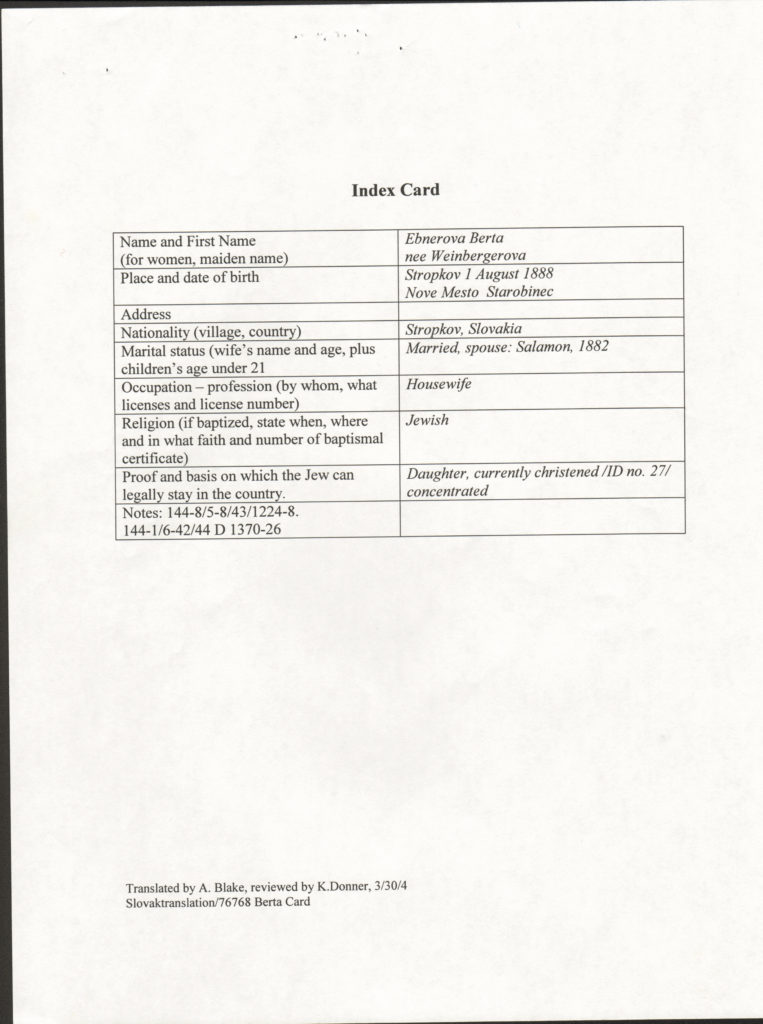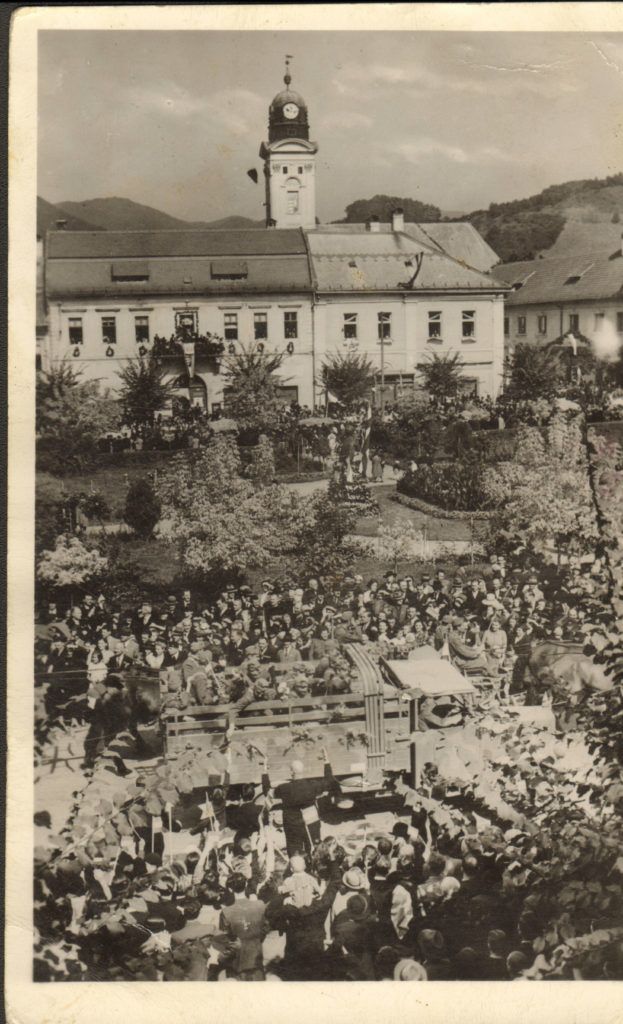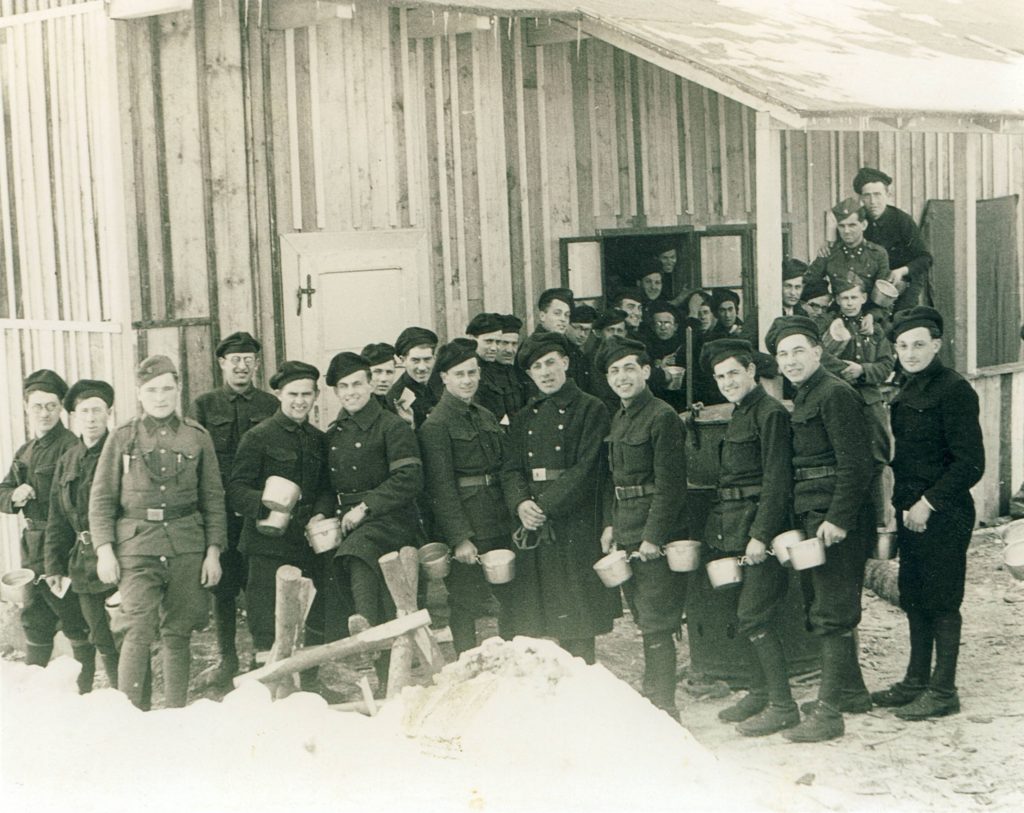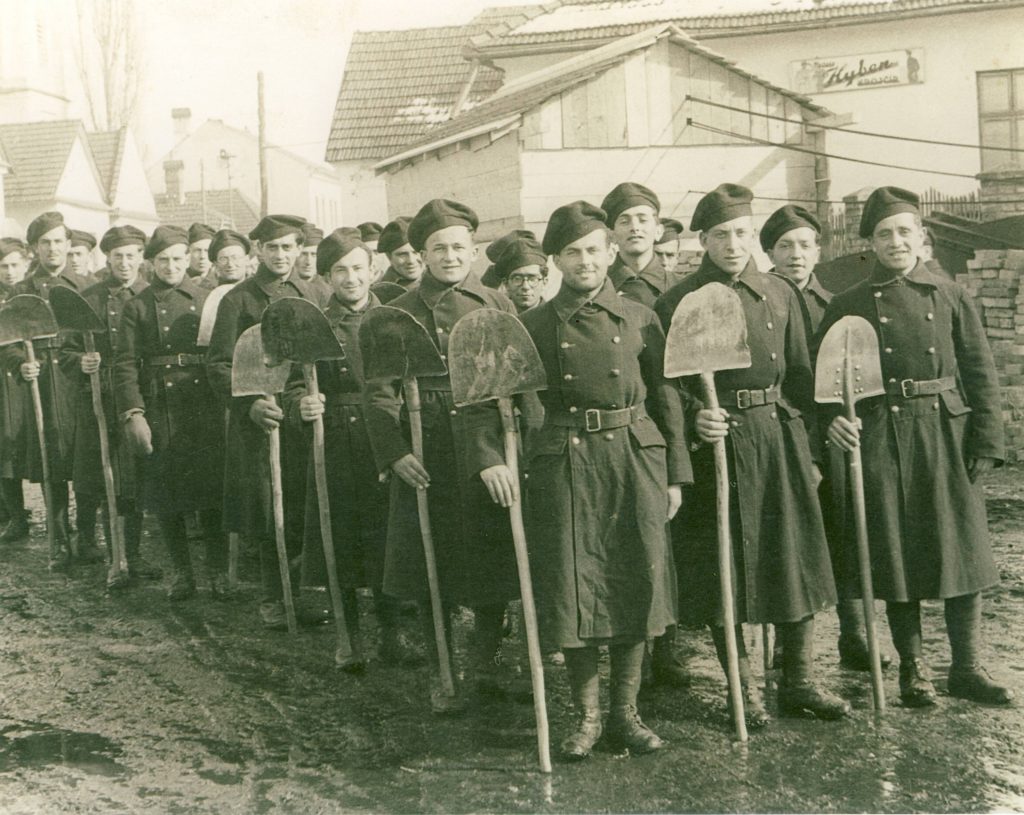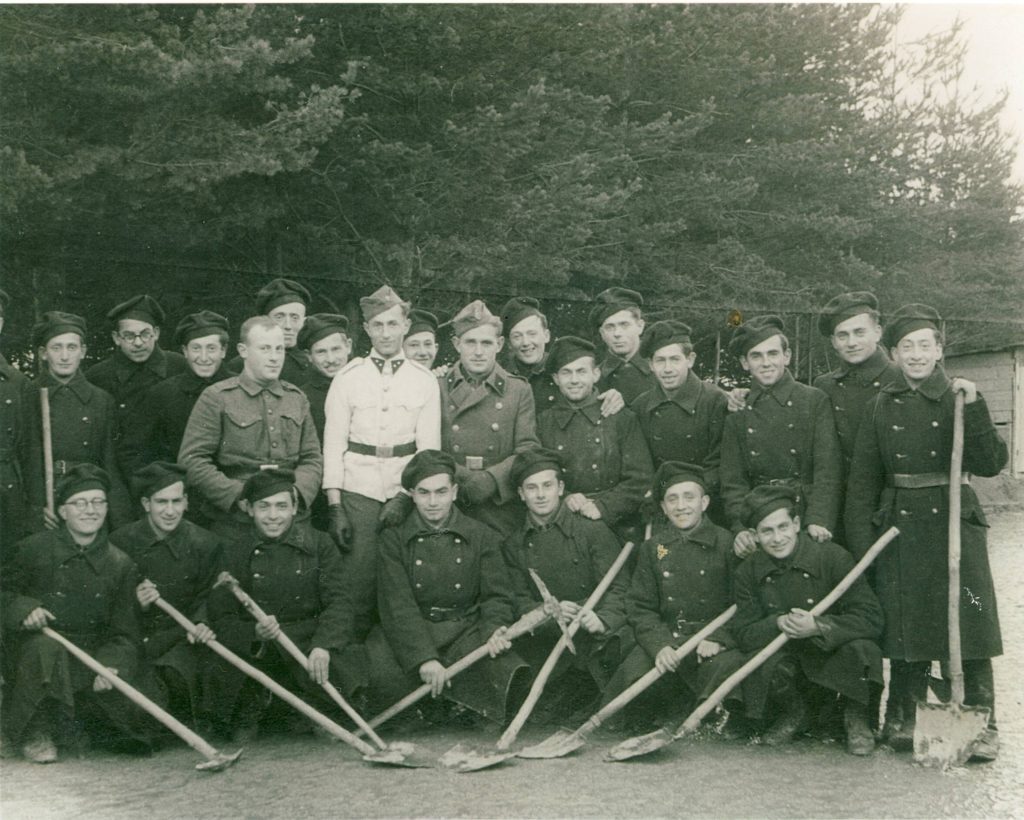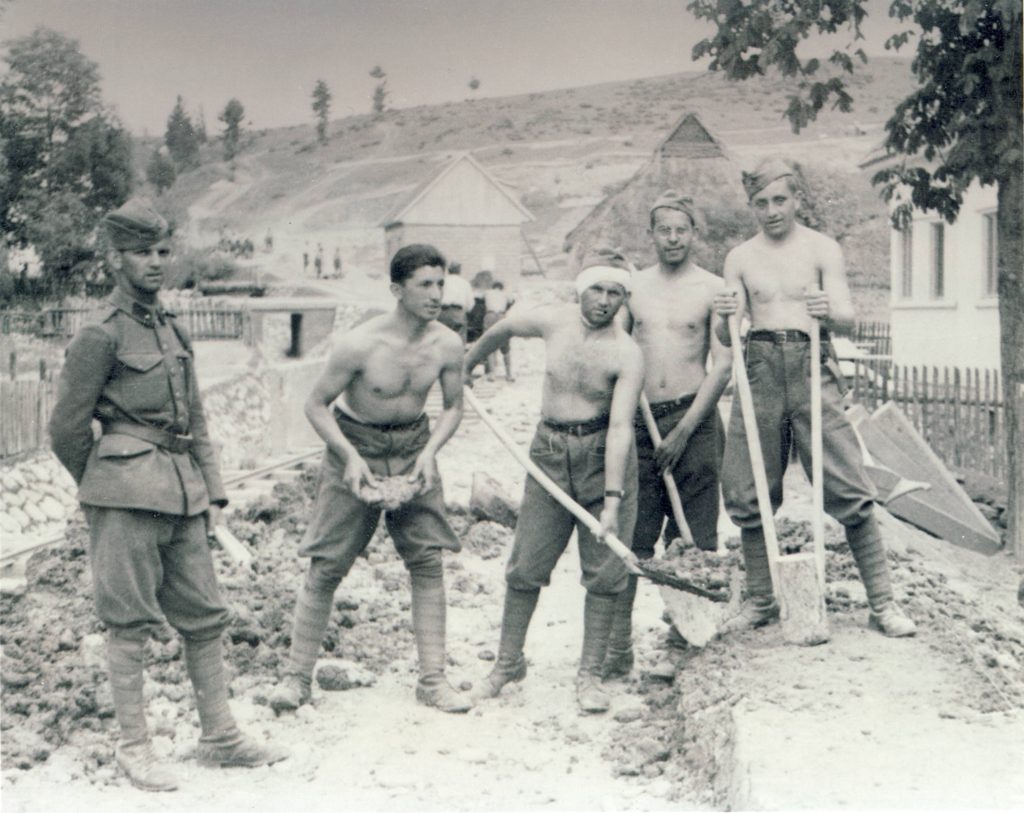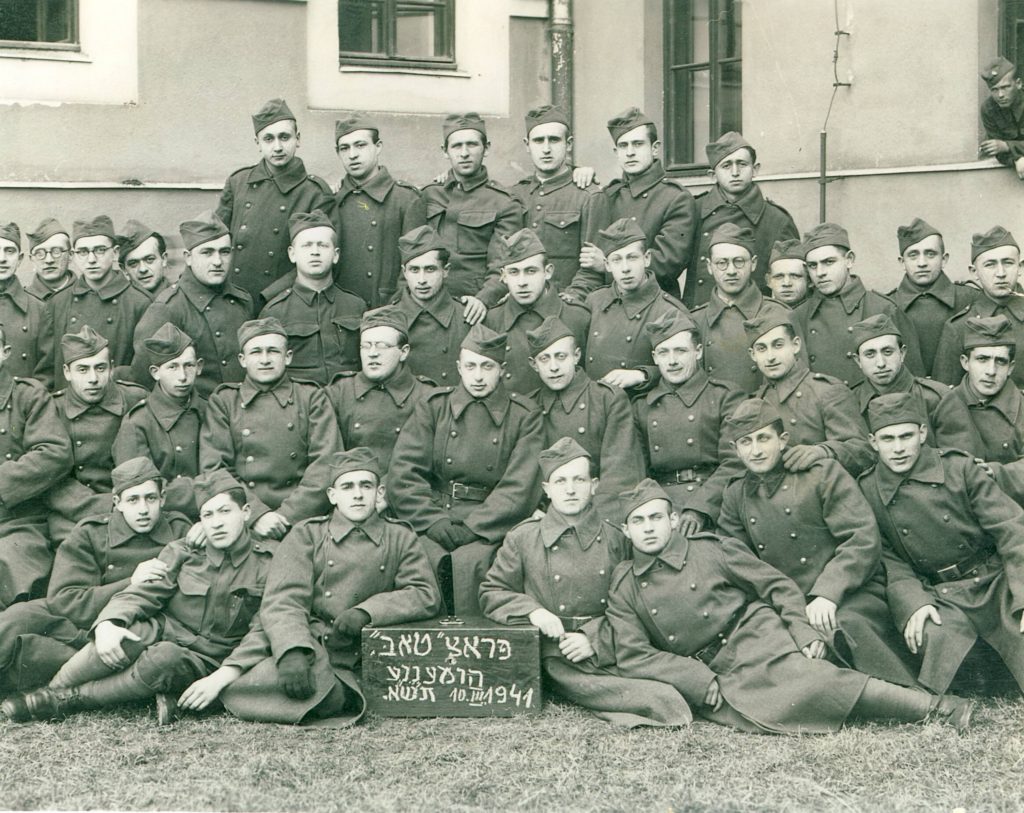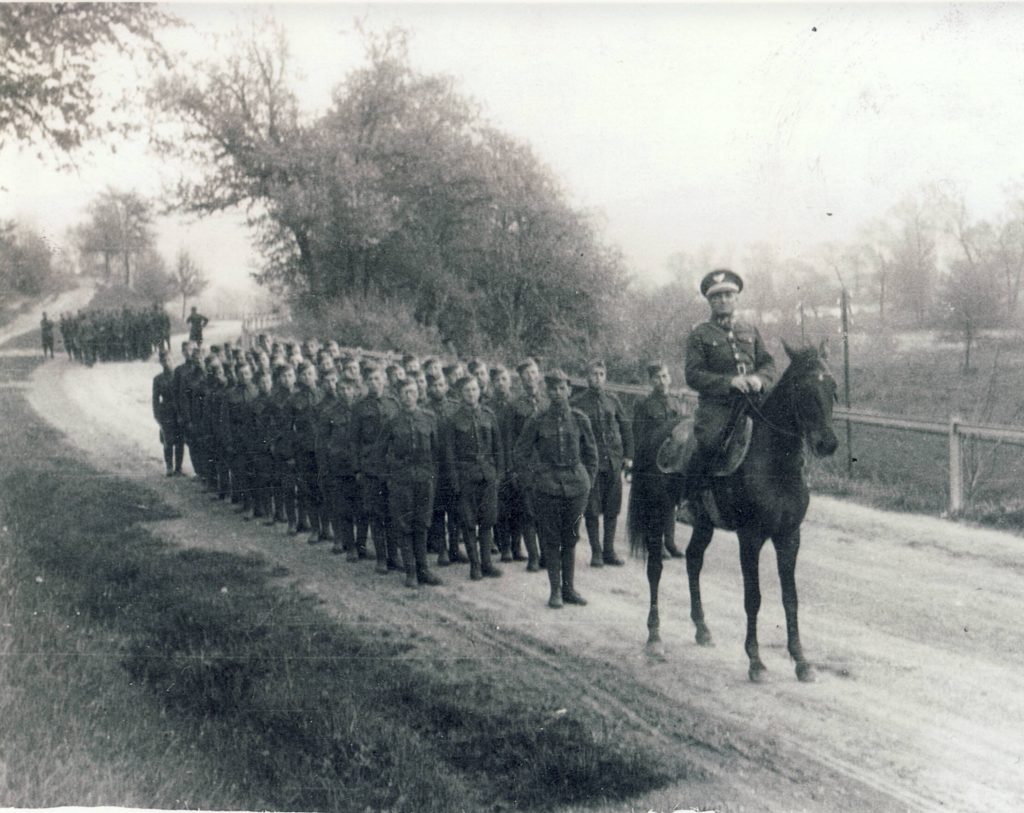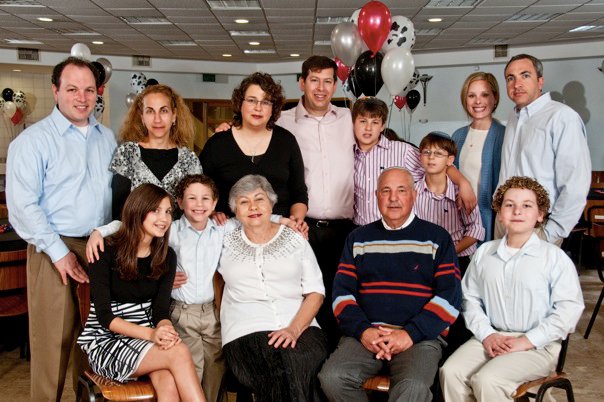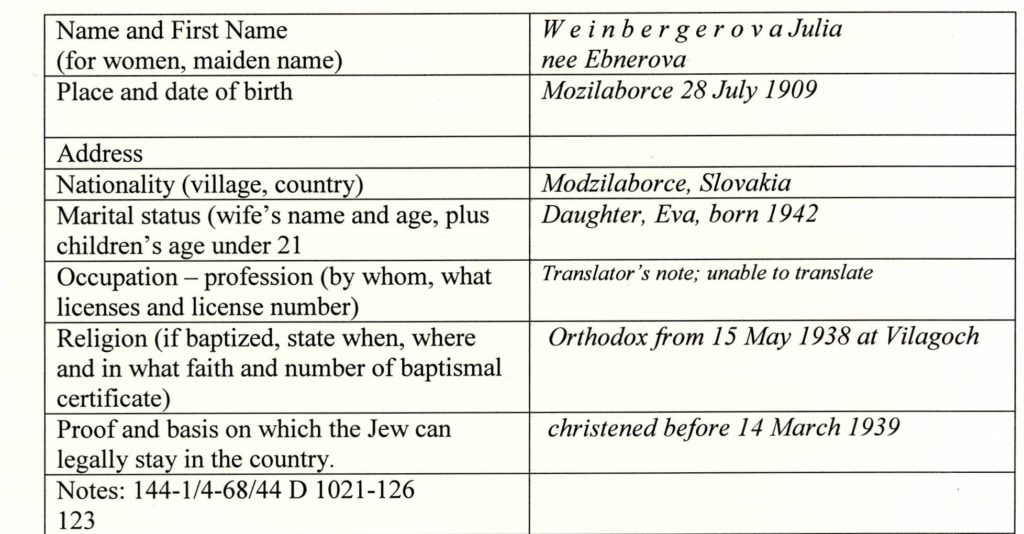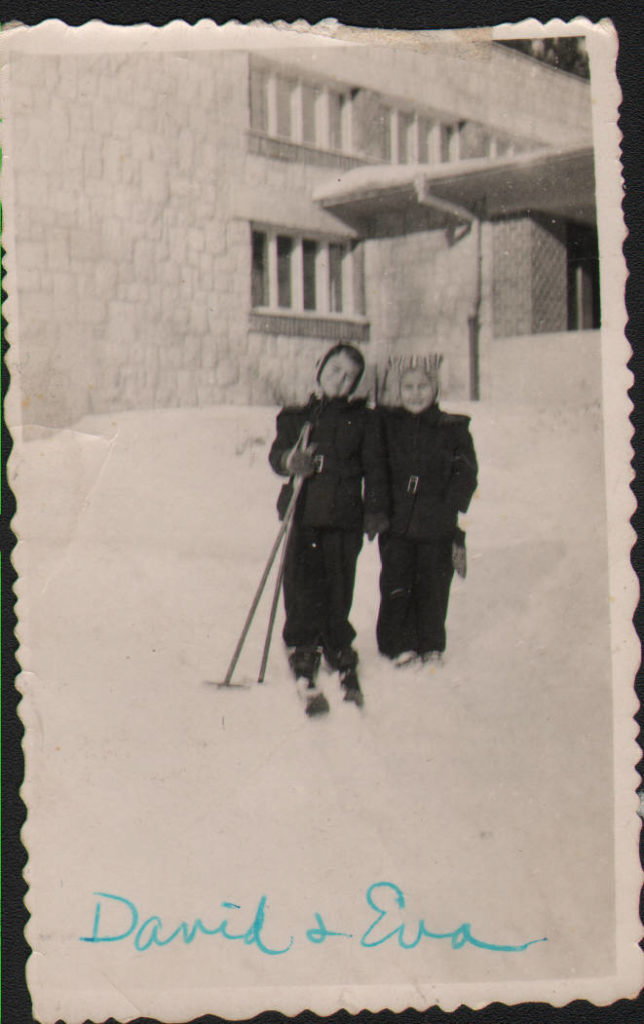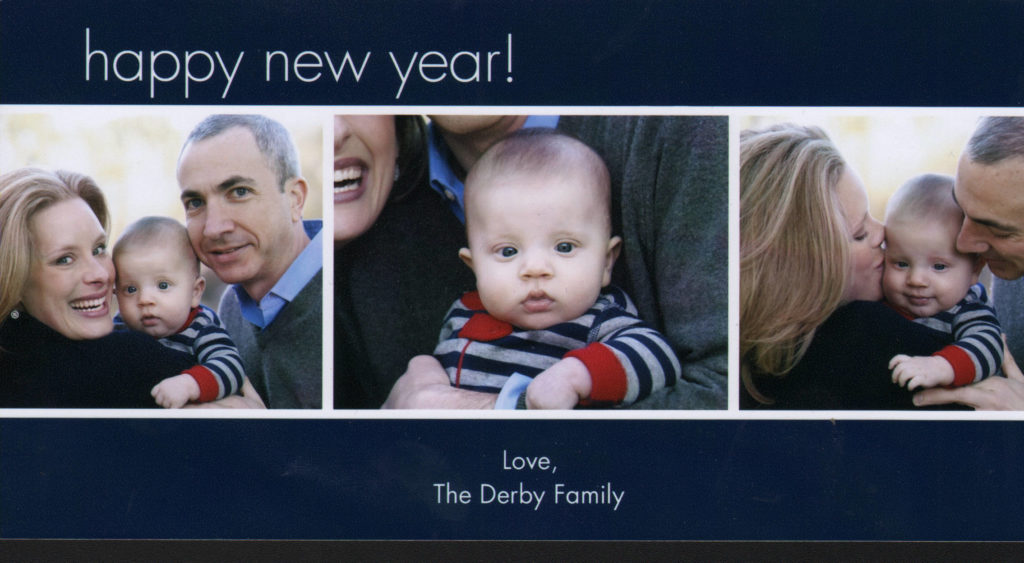PRINCE: My name is “Sister” Prince and I’m interviewing Survivor for the Oral History Project of the St. Louis Center for Holocaust Studies.Today is June 17, 1985.S, please tell me where you were born and when you were born?
SURVIVOR: I was born in a city called Humena, which is in Czechoslovakia near the Hungarian border.It is in the Slovakian and part of Czechoslovakia in July of 1942.
PRINCE: And your mothers name?
SURVIVOR: My mothers name is Julia Rosenberg was her married name.I was born though, under the name of —.Because at the time that my mother was due to deliver me, her name was on the list to be taken.So she checked into the hospital under her mothers maiden name which is —.So that I technically have the name of — on my little green card that admitted me to the United States as —.And then, as I my mother remarried, which is something that I would like to discuss at further length, but at the time that I was, I think, a senior in high school, I decided to change my name once and for all, for the way I wanted it to be.So because I had used the name Judd, which was my step-fathers name, for so many years, I had to keep that name.I then went to the legal aid office in New York, and technically, or officially changed my name to —.And then when I got married in 1962, I dropped the Judd altogether, so that I have all my professional names, so to speak, is —, and I dropped the Judd and I dropped the Weinberger, but felt that it was important to keep my fathers name, and when I graduated from college and my graduate degree has Rosenberg as my middle name.Makes me feel that thers a perpetuation there,My son is named for my father, but I felt that the other surnames were really meaningless to me, so I went ahead and made that move.
PRINCE: What is your sons name?His first name?
SURVIVOR: My sons first name is Dan and my father s name was Alexander, Alex, but nobody ever used English names, so he was called Shy. And my sons name is Yoshiah, which is my fathers name.Shlomo, named for his father, my rather, my father, and my maternal grandfather.
PRINCE: You were born in Czechoslovakia?Where were your parents born?
SURVIVOR: My mother was born in a city in the Slovakian part called Meszalapertz.My father was born, I really dont know where, but it was also in the Slovakian part of Czechoslovakia.But I dont know the city.
PRINCE: How old was your mother when you were born?
SURVIVOR: My mother was in her middle thirties when I was born.She married pretty late in life.She was very late for that period of time.She was one of six.There was boy, boy, girl, then another boy, and then younger sisters.And so she stayed at home, whereas a lot of the other siblings had left and become very professional types of people.She was much more attached to her family, because I know very little about my father just as an area she really doesnt want to talk about.But I know a lot about my grandparents.
PRINCE: Your mother is living still?
SURVIVOR: Yeah.My mother is living, lives in New York City.
PRINCE: What about your grandparents?
SURVIVOR: My grandparents were taken in 1945.Well, they were taken on the last transport to Auschwitz.And my mother hid them in the basement of the house.I was a Mischeling, I had baptismal papers.That my mother was not Jewish, but my father was.So
PRINCE: This is true?
SURVIVOR: This is true.No, no, no.It so happens that my mother is Jewish but she did have, she was able to get papers from the priests.
PRINCE: Will you explain what mischeling means?
SURVIVOR: Well, my mother claimed that she was not Jewish, and had been married to a Jewish man.
PRINCE: And she could get away with that?
SURVIVOR: Up until around 1944, because if Im not very well-read, I mean I was a history major in college, but I scrupulously avoid reading a lot of painful things.But as we look at history, we know that the Hungarian and the Romanian Jews had very difficult living situations but it was not until 43, 44, 45 that they were started to be deported wholesale and thats where everything fell apart.So until 1944, actually the beginning of 1945, my mother was able to hide her parents in the basement of the house.Everyone had been taken away already.And I was hidden also with my grandparents.
PRINCE: Okay, in the basement?
SURVIVOR: In the basement.
PRINCE: Can you describe the basement.
SURVIVOR: No, no.I had a chimney seat.Thats the joke was that I had a chimney seat, and so whenever there was a knock on the door, my grandparents would go into the basement, and I would go into the chimney seat.But I cant describe it.No, no.MY memory of Europe clicks in probably right after the war.I have vivid memories of living in Europe, but I cant describe my seat.
PRINCE: Can you describe any feelings?
SURVIVOR: Im not sure I understand the question.Feelings as I talk to you now, or feelings about
PRINCE: No, feelings like you cant remember where you were sitting, but do you remember how you felt?
SURVIVOR: If were talking about do I remember how I felt when it was my, when it was 1944 or so No, no.I can describe feelings I have as I talk to you now, but I would not be honest if I said this is how I felt.
PRINCE: How do you feel now?
SURVIVOR: Well, I think now as I get older, I feel more and more cheated.Not for myself only, but for that whole group of people who dies.And, much more militant.Vocally militant.For example, I hope that Mengele is alive, so that he can be punished, so that he can have horrible things happen to him, which I know in a civilized world isnt going to happen.But I hope with all my heart, hes alive so that he can be captured and something can be done to him.I make no bones about my feelings.
PRINCE: I find it interesting that everyone does seem to feel that way.That they are speaking out.
SURVIVOR: Yeah.It would be just too kind for him to have died.
PRINCE: Was there a ghetto?In Humena?
SURVIVOR: Well, what I am sharing with you now is that which my mother has told me.Okay, where they lived was a town of about 5,00people.And the Jewish people lived in uncertain streets so to speak.But it was not a ghetto in the sense that we would have a ghetto like in Warsaw or in Lodz or in Brodyslova where there were larger groups of people and you could say this is the Jewish section of town.It was not that large a city that it could support that type of ghetto existence.And a lot of the young boys went away to learn in Yeshiva, because there wasnt a Yeshiva there.
PRINCE: Do you remember your grandparents?
SURVIVOR: No.I have pictures of my grandparents, I know that they were fine, respected members of the communities.It gives me pleasure to discuss them if this would come up in our conversation, but I dont have personal memory of them.
PRINCE: Lets discuss them then.
SURVIVOR: Well, my grandfather was a very, very respected man.They had a confectionary store.One that would probably be on the par, where they sold chocolates, European chocolates and ground nuts.So it would be a confectionary store, not a candy man.And he was a very learned man.His honesty is summed up, in that my mother tells me that he was the man that was chosen to equitably distribute the Passover flour, in the time that the Matzah was hand-baked.Not hand-baked in the fact that they were super holy, but that that was the only way you could get matzah.He was the person that saw to it that the distribution of the flour was equal.Rich, poor, saw to it that people had food.Fridays and Saturdays and my grandmother, from what I gathered, supported him in all these activities.She was a fine homemaker.They were beautiful people, beautiful people.Elegant, well-groomed, modern clothing although they were Hassidic, that was strictly for Saturday, but theres a picture of my grandfather that people wore in the 1930s, not the Hassidic garb.And my grandmother dressed in a long skirt in the backyard under an apple tree, with a beautiful sheitel on, one that one would wear today.And they werent poor people, they were not poor people.
PRINCE: And your mother was able to save their picture?
SURVIVOR: (Agrees)
PRINCE: What were their names?
SURVIVOR: My grandfathers name was Solomon, and thats whence comes my sons name, Shlomo.And my grandmothers name was Blima Rocho.And I have a daughter, my oldest daughters name is Blima Rocho.And she also has the name of my fathers mother, Gitel.So she has three names, because you know,usually the first child, the mother gets to name, and since we had so many my husband also has no memory of his grandparents also, because his background was somewhat similar to mine, so we tried to have be as fair as possible, so our middle daughter is named for his paternal grandmother so that between my husband and his brother, the grandparents have been mortalized.
[Tape cuts]
PRINCE: Now —, your father, you told me that you were born in July of 42, and you told me on the phone that your father died in May of 42.
SURVIVOR: My father and my mother married and it was an arranged marriage.My father was a Talmudic scholar and he was also, I guess by todays standards, it probably be an accountant, but probably not a CPA.So he went to live in my mothers home and studied and took care of the books for the business.Now, when I say arranged, I dont mean that the first time they met was under the wedding canopy, but someone suggested that this daughter here, Yached, was the daughter of these fine people, and heres this Talmudic scholar.Anyways, I think he was about a year younger than my mother.They were married for a pretty short period of time probably about two and a half years or so.And in May, the city, town really, where his parents lived, there were rumors of deportations.And as we know from history and WWI, Jews were indeed deported.It didnt necessarily mean that they were going to be killed.WWI, you have the Germans come in and move you from one town to another town my father-in-law tells these stories, and he went in May of 42 to say goodbye to his parents before they were to be deported and was taken off the streets.So, whether he died in 42 or not, we dont know, but after it was said that he was seen in Auschwitz, because after the war, my mother had to go to a Rabbinic court in Brotyslova, and I have the papers at home to say that she was a widow because Yoshia Alex Rosenberg had been seen in Auschwitz and was presumed and they quote a particular verse from the Bible that said that so that she did not become an aguna.Which is a woman, who no one can testify that she is a widow, yet her husband is missing.Just as an aside, we see this in Israel happening, where they try to find out that the soldier had died, and they would take everybody and anybodys testimony and aguna is a person who is chained, which meant that you could never have remarried.So the Rabbinic courts in Brotyslova said that she was indeed a widow.So we dont have a Yartzeit for example, for my father.There, he was a family of seven and there is one uncle living in Israel, and he said that Yom Kippur was the Yartzeit, because he felt that no matter how far we all strayed, Yom Kippur was the thread that held all Jews together and it was on that day that we would remember the Yartzeits.
PRINCE: Eva this is Orthodox, not Hassidic?Your background?
SURVIVOR: You know, my own background, you know we joke about this all the time. My grandparents were Hasidic, my father was not a Hasid.But, we joke about it cause in my family, in my husbands family, my father-in-law, grew up as a gerer-Hasid, and my mother-in-law grew up as a misnogid, the exact opposite.And were still having these battles over Hasidic versus, I guess, more secular type of orthodoxy.
PRINCE: And what are you now?
SURVIVOR: Probably two steps left of orthodoxy and about six steps right of conservatism.You know?We belong to a traditional congregation, yet our children dont personally travel on Shabbos, or eat non-kosher food, and theyve all gone to Epstein, the glatt-Yeshiva high school.Because of our coming to St. Louis, and weve gone progressively more into the orthodox arena, because of moving to St. Louis, and because we didnt have that rich heritage that I grew up in, in terms of you always knew when it was a holiday.And because I wanted my children to be very, very Jewish, at least have the knowledge of being Jewish when we made the decision to send them to day school, even though my husband and I had gone to public school.
PRINCE: —, what is your first memory?
SURVIVOR: My first memory, chronologically, must have been 1946 or so.Its a two-story with the stairs on the outside, and my mother is a housekeeper for two cousins, brothers.
PRINCE: Where are we?
SURVIVOR: Were in Europe.Were in Czechoslovakia, but I dont know where.Were in Czechoslovakia.And because its not right for her to live up there, she and I lived downstairs with this very old woman, who I see in front of me as I talk to you, and her daughter is a cripple.And her daughter is a big, big woman and she is a cripple.And it is cold.It is around Sukkot time, because I remember on the second floor there was a sukkah.And she and I lived down there.And were sitting on the stove cause its cold and I topple forward and she catches me.
PRINCE: The mother?
SURVIVOR: The old woman catches me, and my mother is upstairs doing something for these the two men, the two boys.
PRINCE: When she caught you, what did she do with you?Just set you down?
SURVIVOR: Just set me down, thats all.I mean, I was their mascot, and so I remember being with them.
PRINCE: Describe her.
SURVIVOR: Describe the old woman?
PRINCE: Yeah.
SURVIVOR: Shes small, shes small.Shes got white hair, and shes very much on the thin side, and shes very old.And were in the kitchen, and its one of those stoves where you have to put in this thing to pick it up, okay?And you put in coals; its a coal-burning stove.And theres a table.And her daughter is a big woman, shes got kind of like reddish hair, shes a big woman, she uses crutches all the time, and shes sitting on a stool right near the stove.And Im sitting kind of like on the edge of the stove.And its the kitchen, which kitchen, it was the room.And when I went to sleep at night, it was cold, and so there were bricks, brick was put at the foot of the bed before you got in.They wrapped up and that was put at the foot of the bed.So my kids joke with me, when I watch Little House on the Prairie, I say, forget it, you know, this happened in 1940-something.
PRINCE: And it was me. (laughing).
SURVIVOR: And it was me, and it was cold.
PRINCE: Did you sleep in bed with you mother?
SURVIVOR: Yeah, always.I slept in bed with my mother until we came to the United States.
PRINCE: And when was that?
SURVIVOR: 1948.I was a few months shy of my sixth birthday.So I remember that and I remember these two boys, Mendlevich is their name and they live in Williamsburg now, and my mother sees them, still keeps in touch with them just on a catchers catch can type of basis.And she kept house for them.. And I must be very honest with you.I do not remember being hungry.Im sure I was, but I dont remember being hungry.
PRINCE: Why are you sure you were if you dont remember?
SURVIVOR: Because my mother tells me that there were times especially in 1944 1945 where it was very, very, very bad.See, what happened was that in 1944, they found that the papers were false.
PRINCE: They?
SURVIVOR: They the Gestapo, the Germans.And the Russians were coming in at the same time, so were really talking about at the end of the war, the very end.The Russians were coming in, my mother was arrested, I was arrested, my grandparents had just been deported to Auschwitz.
PRINCE: Now what happened when you were arrested?
SURVIVOR: We were sent to Terezenstadt.
PRINCE: Now is this something you remember?
SURVIVOR: I dont remember.No, I dont remember.We were sent to Terezenstadt, and Terezenstadt was full.And there was a very, very powerful Hungarian Rabbi who apparently was taking in women and children into what had been an old age home.And so Terezenstadt was full, and we were so close that I have money from Terezenstadt.They took the crowning form my mother, and I dont remember this, but you know I can reconstruct a picture, its like something you see on television.My mother –
PRINCE: Because of what youve been told
SURVIVOR: Right, because of what Ive been told.My mother gave me the money about five years ago, and its in a safe deposit box and its Theresienstadt money.And I was once asked if I wanted to donate a piece of it to the Center and I said selfishly, No.I need to divide it among my three children.And then we were diverted to this old age home and liberated by the Russians.
PRINCE: Alright. The first memory you recall was falling off the stove into that old ladys arms.
SURVIVOR: Right, right.
PRINCE: What is the next memory you can recall?
SURVIVOR: The next memory is about some kind of reunion.Now, were now back in Mishlabritz because my mother went back as soon as she could.And maybe these two boys were in Mishlabrits too and theres a cousin who had also come back.I remember kind of like walking on the street with them and just skipping along the street.I have pictures of that, of my mother, my cousin Ibby, and myself. She at the time gave me this little necklace that I still have with her name on it and my name on it.And I can tell you its 1947, its 1947 cause thats the date on the necklace.
PRINCE: Were you happy then?
SURVIVOR: I was very happy.I mean, I was very happy.I wont fill you with anything other than the truth.I think I was very happy.I was not very happy later on, but at this point in my life, I was very happy.
PRINCE: You were with you mother.
SURVIVOR: I was with my mother and I was with all these people and I was the center of everybodys world because I was this little kid, and I was a cute little kid.I wasnt emaciated.
PRINCE: Youre a beautiful lady.
SURVIVOR: (laughing) Thanks, thanks.But I was this really cute little kid.
PRINCE: Probably a hope for them.
SURVIVOR: Yes.And my mother everyday would go down to the Red Cross to see the names that came out.I dont remember that, but I remember being left with a lot of other people a lot of times.It didnt bother me.But I always remember being left with a lot of people.
PRINCE: Then you didnt mind her leaving.
SURVIVOR: No.It was like for short periods of time and then shed come back.I remember, though, that the legacy that I have is that when I was young and we came to the United States cause I was left in Europe for January through April.I mean, I wasnt abandoned but I was left because my mother had to come to the States before me.So, when we came to the United States and my mother enrolled in night school, I was panic stricken when she had to go out at night.I remember she used to have to get into bed to comfort me.
PRINCE: I have two questions.How do you say mother or momma in Czechoslovakian?
SURVIVOR I dont know.We always spoke Yiddish.
PRINCE: And how do you say it in Yiddish?
SURVIVOR: Mama.Just mama.I spoke Slovak but when I came to the United States, nobody spoke Slovakian or Hungarian to me, so I quickly lost my ability and thats probably why my English is flawless and I never spoke another language.I understand Yiddish and I understand a little bit of Hungarian but thats only because I married someone whose mother is Hungarian.Twenty-three years ago, I didnt know a word.
PRINCE: What were the circumstances of your mother coming here first, and who did she leave you with?
SURVIVOR: Well, theres a whole part of my life that clicks in after my mother was a housekeeper for these two boys.The part of my life that clicks in and therefore, it needs to be sequential they, I dont know how, but my mother found my fathers brother, S.R. whos now living in Israel.So we went to Lucenec, which is not that far from Bratislavia, and we went to live with them.
PRINCE: Did he have a wife?
SURVIVOR: Wife and a son who is a year and one-half older than I am.His birthday is in January, exactly a year and one-half before mine, and we went to live with them.In retrospect, I guess, we werent badly treated, but we werent really nicely treated either.My cousin, D, whose name was I at the time, had this huge room filled with toys and white furniture.It was a big room.And my aunt and uncle had this big bedroom.My mother and I had a day bed in the corner of what was the living room, dining room combined.In retrospect, it was kind of humiliating.
PRINCE: You did feel that?
SURVIVOR: Yes.
PRINCE: How old were you then?
SURVIVOR: I was probably four, four and one-half.We lived with them for a pretty long time.And then, contact was made with the United States.
PRINCE: Excuse me did she do some work for them?
SURVIVOR: Yes, she was the maid.When we came, the cook and the maid were both let go and my mother assumed those roles.I was out playing with the kids, but it was like my cousin I had this great big room and I didnt.The interesting thing is that my aunt in Israel, whenever I see her, always says, Whenever I bought D something, I was sure to buy something for you too.Now you know Ive had enough counseling training to realize that theres a lot in that message.Theyre very wealthy and whenever they have contact with my kids, there are lots and lots of presents and lots and lots of gifts, and lots and lots of How we always took good care of your mother.
PRINCE: Shes still trying to make up for it.
SURVIVOR: Yes, I think so, I really do.But shes sick now and theyre old and so on, but…Contact was made with the United States, and they married my mother off because they really didnt want this responsibility anymore.So this man came to Europe and you talk about differences in ages.Okay, this man came from the United States to Europe, to Lucenec, and he was a widower no, it was to find a wife, my mother.He was a widower.He had been married to my mothers aunt, a contemporary of my grandmother.You know, when I talk about this, I get very angry.So, he had been married to my mothers aunt my mothers mothers sister, this widower.He had two children and a stepchild.The children were in the armed services, one in the European area and one in the Pacific.And they were taken out of college to go into the army.So you know what we were talking about age-wise.So he came to Europe and married my mother in January in Europe, because were talking about quotas and visas and sponsorship and so on.He took her to the United States and then she put in her time here so that she could become sponsor for me.And I was left in the care of my aunt and uncle in Europe.I missed my mother very much.They were already starting to do pretty well economically, so there are pictures of us Im standing, my cousin is on skis.I remember I used to walk him back and forth to school.That was the big activity of the day back and forth to school.
PRINCE: You went to school too?
SURVIVOR: No, because they knew I was coming to the United States, so they didnt enroll me in Kindergarten.There were a bunch of other kids on the block, two of whom Ive met subsequently in Israel, so everybodys still well and so on.These are all people who are a year and one-half older than I am, and I met them in Israel.
PRINCE: By accident, or?
SURVIVOR: No, no, no, no.They were all still in touch with each other.My cousin D who lives in Israel is in touch with these friends we had in Lucenec.


